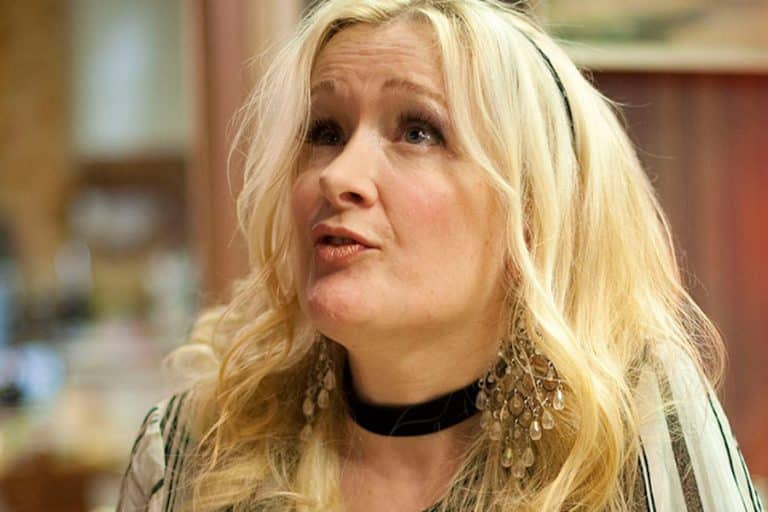How to survive uni stress and stick to your New Year resolutions
- Written by Ana Iliescu
- Last updated 7 years ago
- Health & Wellbeing, Sport, Students, Videos

Going back to uni, after a long Christmas break of too much food and alcohol and not knowing what day of the week it is, probably feels like a rocky road back to reality.
Add exams and deadlines to the mix and you may feel overwhelmed – and the new year only started a couple of weeks ago.
Although everyone has different stress coping mechanisms, it has been proved time and again that meditation, exercise and a balanced diet can massively improve your wellbeing.
When you’re a student, it can be difficult to find the time to do all of the above while studying for your exams, searching for placements, planning your future and working part time in a bar.
Here’s how to survive uni stress and stick to your goals…
According to 22 year-old Manchester University student and personal trainer Eryn Barber, half an hour of yoga followed by ten minutes of meditation in the morning can make a real difference to your day.
“If you wake up and take half an hour to yourself, whether it’s reading or meditation, you’re starting your day off right. You’re going to be calm and you’re heading into the day with a good mindset.”
The key to meditating isn’t clearing your mind of any thoughts, as Eryn explains, but teaching yourself to let them go.
“If you think about something that makes you angry, you should acknowledge the anger without actually reacting to the emotion.”
You can start off with no more than two minutes a day. No one can say they don’t have that time, since we all spend at least an hour scrolling through Instagram, and you can use apps for guided meditation like Calm; Stop, Breath & Think or Headspace, all of which are free and don’t require you to go all the way to the Buddhist centre in town.
Another way you can reduce your stress levels is making sure you get a good night’s rest. Students are always tired and that is mainly because their sleep patterns are as irregular as it can get.
“If one night you go to bed at 10 pm and the next one at 4 in the morning, your body won’t know when it’s time to be tired. Try to set up a time you go to bed every night and stick to it”, says Eryn.
Another golden tool to boost your wellbeing is good old exercise, which makes your brain release endorphins, the hormone of happiness. To make sure you stick to your plan to work out more in 2018, you need to make sure you enjoy it.
“Don’t go to the gym just because everyone on Instagram and all of your friends are doing booty building programmes and things like that,” says Eryn. “Go and play a sport that you like whether it’s netball or hockey or anything. Do something that you actually enjoy.
“Also, always look at the bigger picture. There were times when my best friend and I were sat in the car park at the gym for 20 minutes and then we drove back because it was raining.
“But we made this pact that whenever we go somewhere and we don’t want to do it, we’ll think about how we feel afterwards.
“Nobody wants to go to the gym when it’s raining but no one has come out after a yoga class and said I feel worse now.”
When it comes to having a balanced diet, Eryn says that, just like every other student, she always checks the price tag. But that doesn’t stop her from eating clean. One of her favourite tricks is using a slow cooker, which keeps all the nutrients and vitamins in the food.
“In the morning I just throw everything in the slow cooker and then when I come home at 8 o’clock at night, dinner’s ready on the table.”
If you want to improve your chances of standing by what you have promised yourself to achieve this new year, it’s important to take it step-by-step, says Eryn:
“The whole new year, new me thing, I just think by the time most people get to the end of January they’re back on the alcohol and the McDonald’s so it doesn’t really work.
“The best thing to do is to set a long-term goal. So if it’s weight, you could say I want to lose three stone over the course of the year. And then you set micro goals, like in two weeks I want to have done six gym classes.
“In two months, I want to have lost a stone but you say ‘I want to lose a stone by doing three gym sessions a week, eating home cooked meals, six out of seven days a week’. That is much more manageable because it’s easier to tick something off the list and feel a sense of achievement.
“Someone once said to me that they don’t like making New Year’s resolutions because that means you’re trying to resolve something that’s wrong and that is quite a negative way to look at it. Instead, you should be thinking in a more positive way like setting a goal.
“Most of the time, there’s no need to reinvent yourself into this new wholesome person that does everything perfectly and exercises and eats right all the time…
“You’re doing ok as you are.”
- This article was last updated 7 years ago.
- It was first published on 20 January 2018 and is subject to be updated from time to time. Please refresh or return to see the latest version.
Did we miss something? Let us know: [email protected]
Want to be the first to receive all the latest news stories, what’s on and events from the heart of Manchester? Sign up here.
Manchester is a successful city, but many people suffer. I Love Manchester helps raise awareness and funds to help improve the lives and prospects of people across Greater Manchester – and we can’t do it without your help. So please support us with what you can so we can continue to spread the love. Thank you in advance!
Got a story worth sharing?
What’s the story? We are all ears when it comes to positive news and inspiring stories. You can send story ideas to [email protected]
An email you’ll love. Subscribe to our newsletter to get the latest news stories delivered direct to your inbox.

Green, grand and gorgeous – a deep dive into the redevelopment of Albert Square

English National Opera finds a new home in Manchester making opera accessible to all

What will replace Northern Quarter’s Church Street multi-story car park?

“Great food at excellent value” An authentic taste of Naples arrives in Ancoats

Comedian spearheads campaign for a statue of beloved comic Caroline Aherne
















